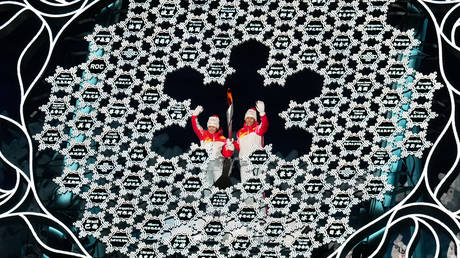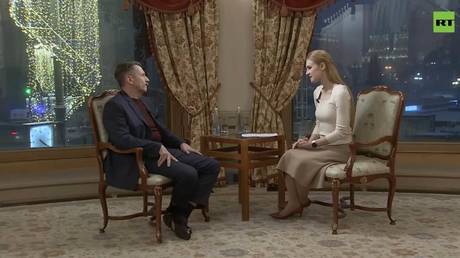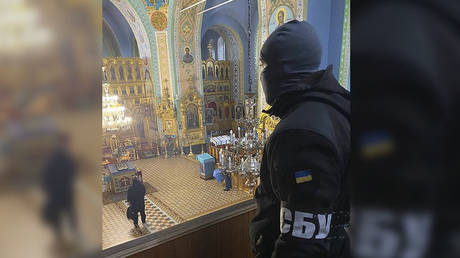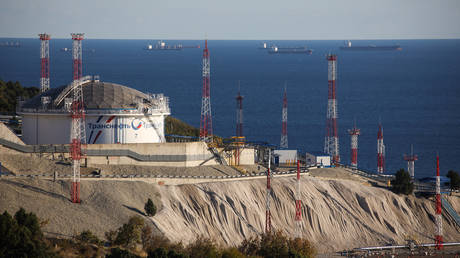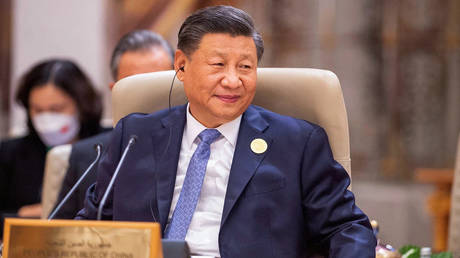Dinigeer Yilamujiang's inclusion as a final Olympic torchbearer during Beijing 2022's opening ceremony was a big talking point
The Beijing 2022 Winter Olympics formally got underway on Friday at a dazzling opening ceremony, but a widely discussed element of the event was the inclusion of cross-country skier Dinigeer Yilamujiang in the lighting of the Olympic cauldron.
The 20-year-old is a medal hopeful in a sport China is not known to excel in, yet also hails from the Xinjiang region.
We explain why her presence drew added scrutiny, and what has been said following the ceremony.
How was the Olympic cauldron lit in Beijing?
Dinigeer Yilamujiang was joined by majority Han descent athlete Zhao Jiawen, who is a Nordic combined skier, and together they jogged into the stadium with the Olympic torch while greeting the crowd.
Once they arrived center stage, the duo put the torch and its small flame inside a giant snowflake containing the names of competing countries, which then became the cauldron and brought the two-hour ceremony directed by filmmaker Zhang Yimou to a close with a light show as dancers formed a love heart.
Dinigeer Yilamujian and Zhao Jiawen carried the Olympic flame during the Beijing 2022 opening ceremony. © Lintao Zhang / Getty Images
Why was the choice of Dinigeer Yilamujiang a controversial issue?
Dinigeer Yilamujiang's inclusion caused debate as she is of minority Uighur descent, hailing from the Xinjiang region where China is accused of placing Uighur Muslims into forced labor in internment camps. China has denied those accusations.
READ MORE: Beijing Winter Olympics officially declared open
Ahead of the Beijing Games, the US led a diplomatic boycott of the event that has been supported by the likes of the United Kingdom, Canada and Australia, in protest at China’s human rights record.
China and its allies including Russia have accused the US and others of needlessly politicizing sport and going against the principles of the Olympic charter.
What was the reaction to the Olympic opening ceremony?
Yilamujiang's involvement in the opening ceremony was described as "the most politically motivated move" by Zumretay Arkin of the World Uighur Congress.
© China via Getty Images
At Maryland's Frostburg State University, an associate professor and expert on the Xinjiang region, Ma Haiyun, said Yilamujiang taking part was a bid to "address criticism by the West."
"By selecting a Uighur athlete to light the torch, China is trying to address criticism by the West about genocide or persecution of the Uyghurs, and about sinicization of ethnic minorities," Ma told the AP.
"But I don't think this can have much effect on the West, which tends to think most of what China puts up is a show anyway."
Various headlines in the Western media have claimed that the choice of Yilamujiang to light the cauldron was a "mighty provocation."
“peace” and “a brighter future”.
What has the IOC said about the opening ceremony?
International Olympic Committee (IOC) spokesperson Mark Adams defended Yilamujiang's appearance by stressing "she is an Olympian competing here."
"As you will know from the Olympic charter we do not discriminate against people because of where they are from and what their background is.
"She is perfectly entitled to take part in the opening. I think it was a lovely concept," Adams added.
READ MORE: The big questions for the Beijing Games
Adams confirmed that "obviously the opening ceremony is something that the organizing committee put together and there's creative input," with the IOC "involved to a certain extent."
And according to Games organizers, the last handful of torchbearers that entered the stadium holding the flame were chosen based on their date of birth above all.
Each was born in a different decade, beginning from the 1950s through to the 2000s, with Yilamujiang and Zhao both born in 2001.
Was that the only row about the Olympic flame?
The presence of Yilamujiang to light the cauldron was not the only drama related to the Olympic flame.
India launched a diplomatic boycott on the eve of the Games after China chose an army commander as a torchbearer for the relay.
READ MORE: India boycotts Beijing Olympics over Chinese choice of torchbearer
Qi Fabao, a People’s Liberation Army regimental commander, was seriously wounded in a 2020 border clash between China and India in the disputed Ladakh region, and was declared a “hero” in his homeland.
